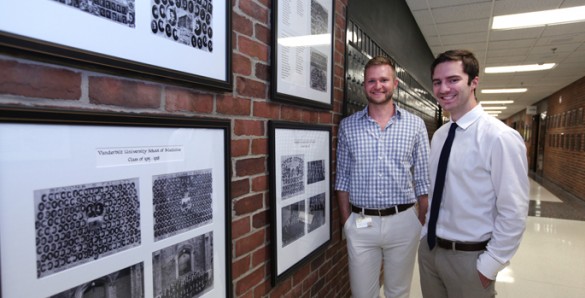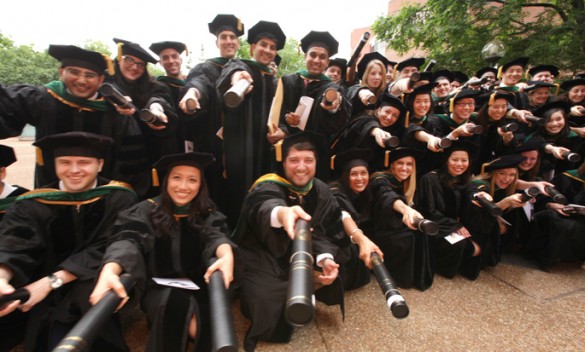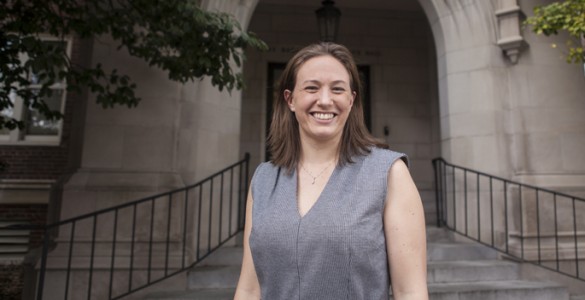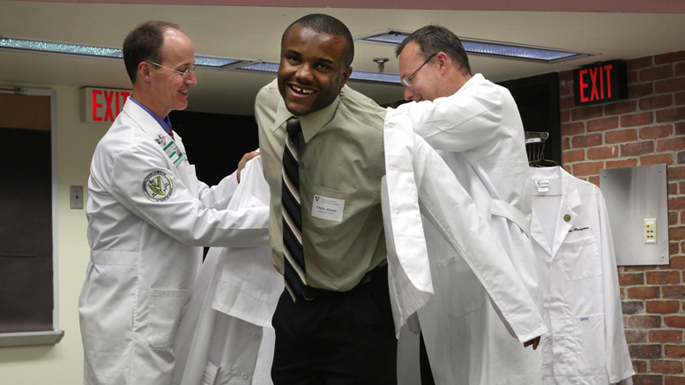
Lily Yu knew she was starting classes earlier than any of her friends, but it didn’t bother her. After all, attending Vanderbilt University School of Medicine is fulfilling her goal of pursuing a medical education at a school that fits her vision and values.
“I didn’t ask about the early start, I figured it was part of the new curriculum and I am enjoying classes already. Our class this week is the Foundations of Medicine, which is about humanism. It really resonates with me,” Yu said.
July 23 was the first day of class for the VUSM class of 2016, a little more than a week earlier than the start of last year’s classes. With the advent of a new curriculum the start of class, orientation and traditional White Coat Ceremony have happened earlier, but many things remain the same. The theme of collegiality, diversity and professionalism that has been the signature of the student body at the School of Medicine for decades remains strong.
John Zic, M.D., associate dean for Admissions, said of the 104 matriculating students, 28 are underrepresented minorities in medicine, making this the most diverse entering class in VUSM’s history. Students hail from top universities across the nation and the world, including Colombia, Peru, Iran, Cuba, China and Spain.
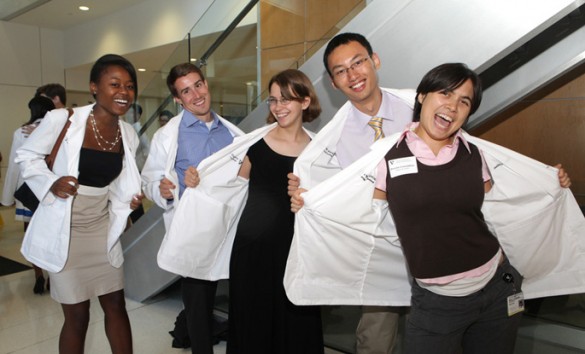
Those with Vanderbilt undergraduate degrees are well represented in the Class of 2016, with 23 students. Ten members of the class plan to pursue their M.D./Ph.D. degrees and more than half the class are scholarship recipients.
“I am excited to welcome our students. Over 100 faculty members helped select this elite group of 104 from over 5,600 applicants. We have great confidence that this class of young scholars has the potential to blossom into the future leaders in medicine,” Zic said.
Yu, a self-described science nerd who immigrated to the United States from China with her researcher-parents at age 9, said diversity at Vanderbilt impressed her, but it was her experience at the Second-Look Weekend that convinced her. There she met many classmates and faculty who echo her passion for medicine and her love for science and people.
Classmate John Stokes, a Memphis native and former VU Commodore football linebacker and long snapper (2007-to-2011), says he was surprised he would be donning his white coat on July 27, before summer courses are wrapped up and before most college students even crack a book. But he says change is what he expects from a top-tier medical school.
“The way our world is these days, everything is changing so rapidly. I tend to think there will be changes this big throughout my career. We can expect medicine to evolve and we want to be part of it, participate in it and keep up with it for years to come,” Stokes said.
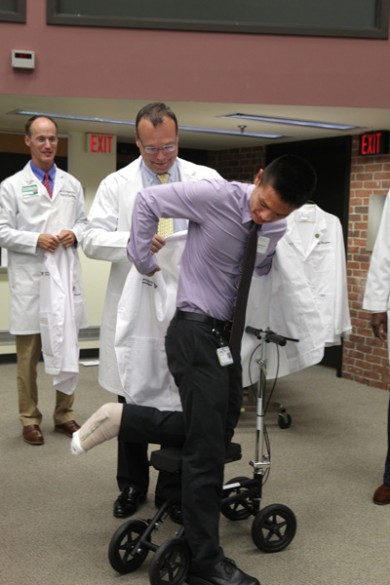
This class will experience major schedule modifications when compared to previous years as part of the implementation of Curriculum 2.0. The new curriculum is designed to bring Vanderbilt medical students into contact with patients throughout all four years to give them the chance to know the people they will serve, while learning how to ride the waves of rapid change and develop into leaders in medicine (For more information, see the Reporter curriculum change story).
Kim Lomis, M.D., associate dean for Undergraduate Medical Education, said, as in previous years, these students will work with the administration, providing essential insight during implementation.
“During their orientation we held a special session to heighten student awareness of their role in their education; the revised curriculum is not something that will be done to them, it is something that they will actively shape. We have ample opportunities for real-time feedback from students throughout the year to enable rapid cycle improvements of their experience,” Lomis said.













